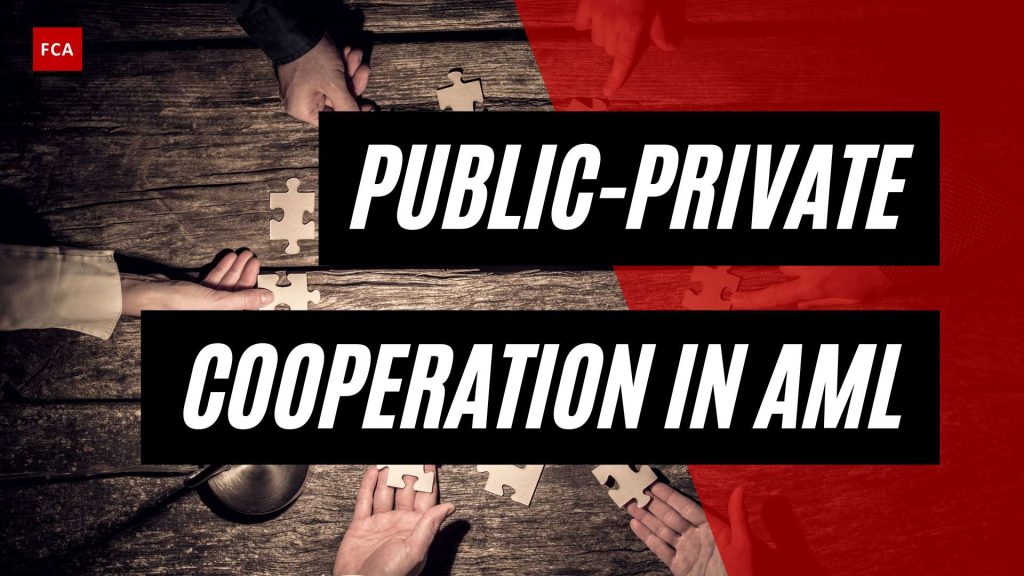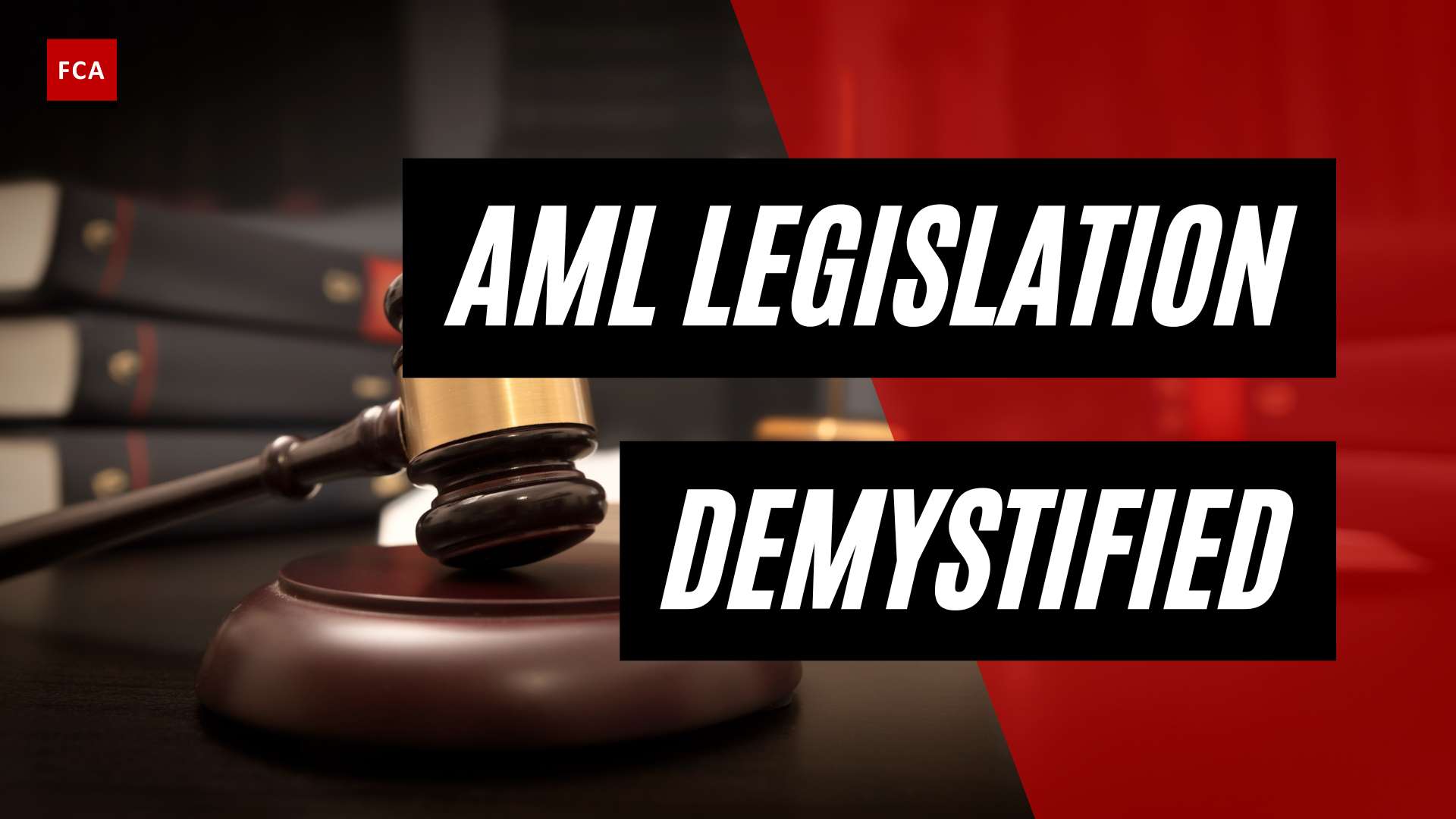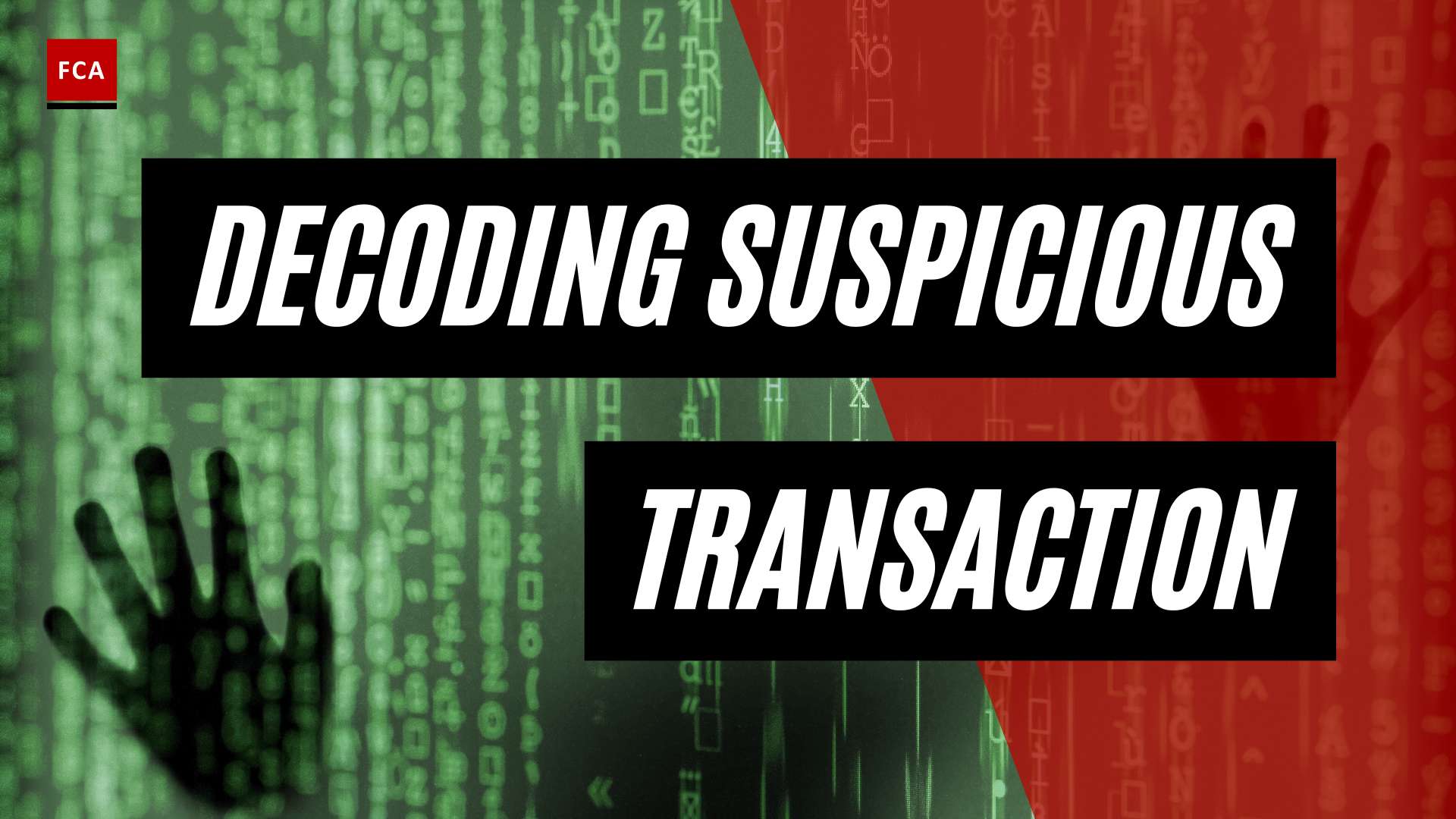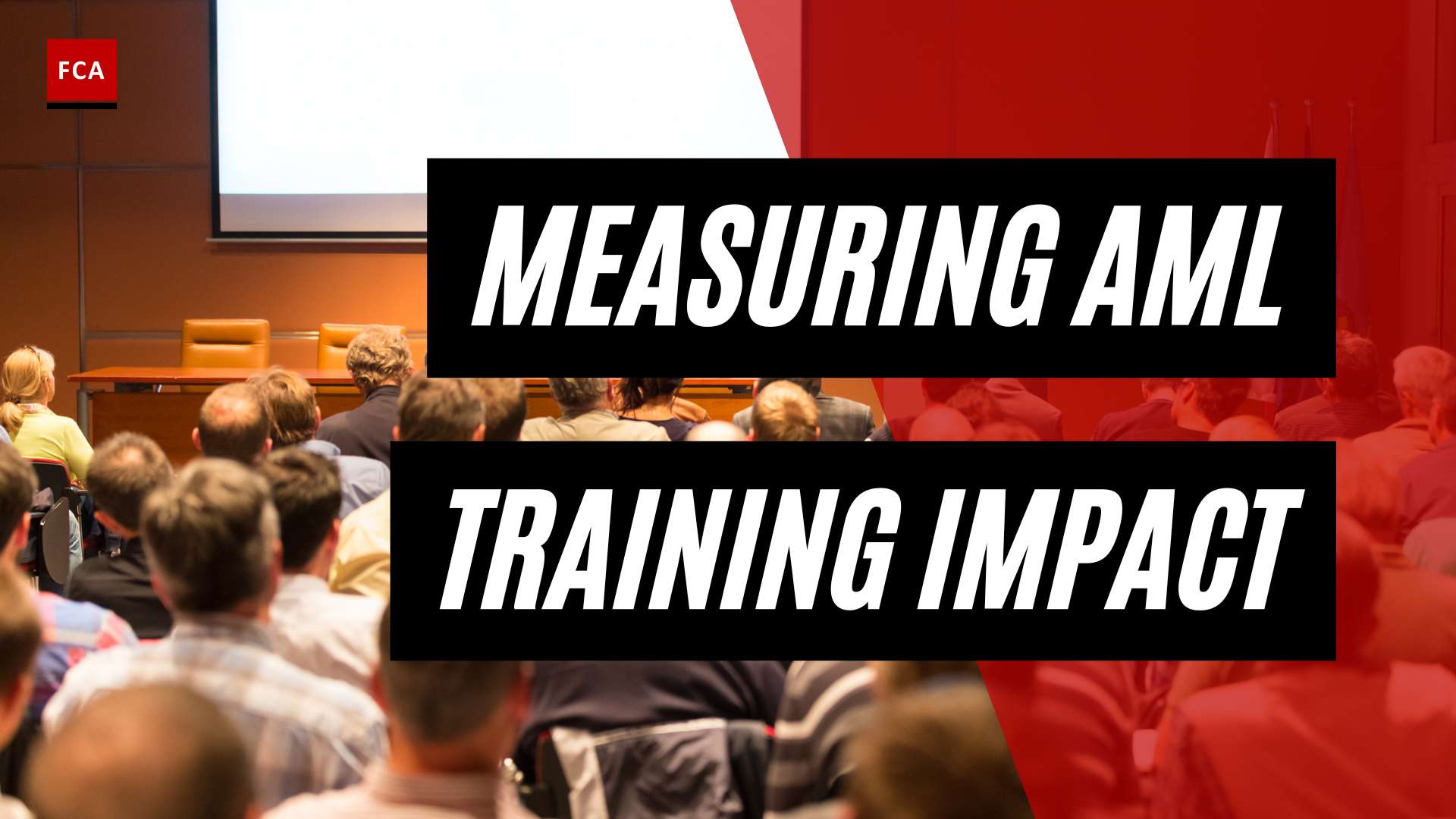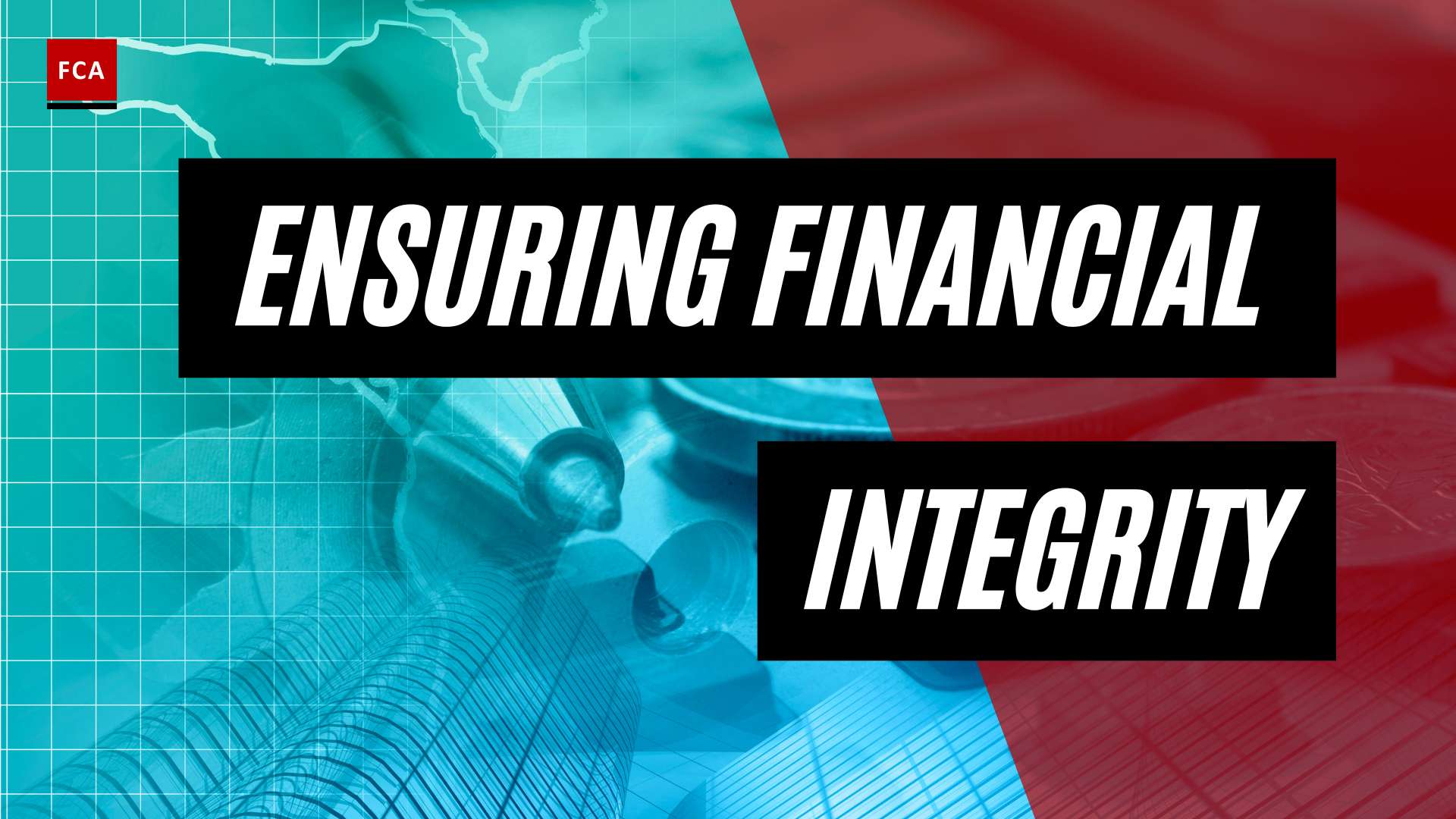Public-Private Partnerships in AML
Public-private cooperation in anti-money laundering (AML) investigations plays a crucial role in enhancing AML efforts by leveraging the strengths of both public and private sector entities. These partnerships enable collaboration, information sharing, and resource pooling to combat financial crimes such as money laundering and terrorist financing. Recognizing the importance of these collaborations, countries and international organizations actively promote public-private cooperation in AML investigations.
Enhancing AML Efforts through Collaboration
Public-private partnerships in AML investigations facilitate the collection, sharing, and analysis of information and resources, leading to more effective AML measures. By collaborating, government agencies, financial institutions, and other stakeholders can collectively address the challenges posed by cross-border and networked crimes, as well as the evolving techniques used by criminals (FATF). The benefits of public-private partnerships include:
-
Access to Information and Expertise: Public-private cooperation allows for the exchange of knowledge and expertise between different stakeholders. Financial institutions possess valuable information and insights that can enhance the capabilities of law enforcement and regulatory agencies in AML investigations. Collaboration ensures that relevant information is shared promptly and efficiently.
-
Bridging Intelligence Gaps: Public-private partnerships help bridge intelligence gaps by combining the resources and intelligence of both sectors. Financial institutions, with their extensive customer data and transaction monitoring systems, can provide valuable information to law enforcement agencies, enabling them to identify suspicious activities and potential money laundering schemes.
-
Holistic Approach to AML: Collaboration between the public and private sectors enables a holistic approach to AML efforts. By working together, stakeholders can develop comprehensive strategies, share best practices, and coordinate actions to detect and prevent financial crimes effectively. This integrated approach enhances the overall effectiveness of AML measures.
-
Enhanced Investigations and Enforcement Actions: Public-private partnerships provide law enforcement agencies with access to additional resources and expertise, enabling them to conduct more thorough investigations and take robust enforcement actions against money launderers and other financial criminals. Timely information sharing and collaboration contribute to more successful outcomes in detecting and prosecuting illicit activities.
Importance of Public-Private Cooperation
Public-private cooperation in AML investigations is vital in combating money laundering and terrorist financing effectively. Recognizing the significance of these partnerships, countries and international organizations, such as the Financial Action Task Force (FATF), emphasize the need for effective information-sharing mechanisms and collaboration between the public and private sectors (Alessa). The benefits of public-private cooperation include:
-
Efficient Utilization of Resources: Public-private partnerships optimize the utilization of resources by pooling together the expertise, technology, and data available in both sectors. This collaboration ensures that efforts to combat financial crimes are not duplicated, and resources are allocated effectively.
-
Fostering Trust and Accountability: By working together, the public and private sectors foster trust and accountability, leading to increased transparency and more effective AML measures. Collaboration promotes a shared responsibility in combating financial crimes and maintaining the integrity of the financial system.
-
Staying Ahead of Evolving Threats: The ever-evolving nature of financial crimes requires a proactive and adaptive approach. Public-private partnerships facilitate the exchange of information and insights on emerging threats, enabling stakeholders to stay ahead of evolving tactics used by money launderers and terrorist financiers.
Public-private partnerships in AML investigations are essential in addressing the challenges posed by financial crimes. By leveraging the collective expertise, resources, and technology of both sectors, these collaborations enhance the effectiveness of AML efforts and contribute to a more robust and resilient financial system.
Forms of Public-Private Cooperation
To effectively combat financial crimes, such as money laundering and terrorist financing, public and private entities collaborate through various forms of public-private cooperation in AML investigations. These partnerships aim to enhance the effectiveness of AML efforts by leveraging the strengths of both sectors. Let’s explore three common forms of public-private cooperation in the context of AML.
Information-Sharing Arrangements
Information-sharing arrangements play a crucial role in public-private cooperation in AML. These arrangements involve the exchange of information and intelligence between government agencies, financial institutions, and other relevant parties. By sharing valuable insights and data, these entities can collectively identify and prevent financial crimes more effectively.
Through information-sharing arrangements, financial institutions can provide law enforcement agencies and regulatory bodies with essential information related to suspicious activities, transactions, and individuals. This collaboration allows for a more comprehensive understanding of potential risks and enables law enforcement agencies to focus their investigations on high-priority cases. Additionally, it helps bridge gaps in intelligence and promotes a more holistic approach to AML efforts.
Task Forces and Advisory Boards
Task forces and advisory boards are another important form of public-private cooperation in AML investigations. These collaborative bodies bring together representatives from government agencies, financial institutions, and relevant stakeholders to collectively address AML challenges and develop strategies for combating financial crimes.
Task forces typically consist of multidisciplinary teams that work together to investigate complex cases and share expertise across sectors. By pooling resources, knowledge, and investigative capabilities, task forces can effectively target and disrupt criminal networks involved in money laundering and other illicit activities.
Advisory boards, on the other hand, provide a platform for public and private sector representatives to share insights, discuss emerging trends, and provide guidance on AML policies and regulations. These boards facilitate dialogue and collaboration, ensuring that AML efforts remain aligned with evolving industry practices and regulatory requirements.
Working Groups and Joint Initiatives
Working groups and joint initiatives are collaborative efforts that bring together public and private entities to address specific AML challenges or focus on particular industry sectors. These groups typically consist of subject matter experts who work together to develop best practices, share knowledge, and devise solutions to common AML issues.
Working groups and joint initiatives allow for focused discussions and the exchange of ideas between relevant stakeholders. They provide an avenue for industry professionals and regulators to collaborate on developing effective AML measures, enhancing compliance standards, and sharing expertise and experiences.
By leveraging the collective knowledge, resources, and expertise of all participants, working groups and joint initiatives drive innovation and facilitate the adoption of best practices in AML investigations.
Public-private cooperation in AML investigations is essential for combating financial crimes effectively. Information-sharing arrangements, task forces and advisory boards, and working groups and joint initiatives play a crucial role in leveraging the strengths of both sectors to enhance AML efforts. These collaborative forms of cooperation enable the exchange of information, expertise, and resources, ultimately leading to more robust and effective AML investigations and enforcement actions.
Benefits of Public-Private Partnerships
Public-private partnerships play a crucial role in the fight against money laundering and have numerous benefits that contribute to the effectiveness of Anti-Money Laundering (AML) investigations. These partnerships bridge intelligence gaps, promote a holistic approach to AML, and enhance investigations and enforcement actions.
Bridging Intelligence Gaps
One of the significant benefits of public-private partnerships in AML is the bridging of intelligence gaps. By leveraging the collective expertise and resources of both the public and private sectors, these partnerships enhance information sharing and analysis. The private sector, including financial institutions and other relevant entities, possesses valuable insights and data that can aid law enforcement and regulatory agencies in identifying and investigating suspicious financial activities (Alessa). This collaboration helps close the information gaps that often exist between these entities, enabling more comprehensive AML investigations.
Holistic Approach to AML
Public-private partnerships promote a more holistic approach to AML efforts. The collaboration between the public and private sectors allows for the sharing of knowledge, best practices, and innovative strategies in combating money laundering (Alessa). By combining the strengths of both sectors, these partnerships foster a more comprehensive understanding of money laundering risks and enable the development of more effective prevention and detection measures. This holistic approach helps address the constantly evolving tactics employed by money launderers and terrorist financiers (CFATF-GAFIC).
Enhanced Investigations and Enforcement Actions
Public-private partnerships significantly enhance investigations and enforcement actions in the realm of AML. The collaboration between the public and private sectors allows for the seamless exchange of information, which can uncover hidden connections and patterns of illicit financial activities. This exchange of information improves the identification of suspicious transactions and strengthens the overall effectiveness of AML investigations (CFATF-GAFIC). Moreover, public-private partnerships facilitate cooperation in conducting joint operations, sharing resources, and coordinating efforts to combat money laundering and terrorist financing effectively. By leveraging the collective intelligence and capabilities of both sectors, these partnerships enhance enforcement actions and contribute to the disruption of illicit financial networks.
Public-private partnerships are an essential component of AML efforts, enabling the bridging of intelligence gaps, fostering a holistic approach, and enhancing investigations and enforcement actions. The collaboration between the public and private sectors strengthens the resilience of financial systems against money laundering activities, protects the integrity of the financial sector, and contributes to national security efforts in combating illicit financial activities (CFATF-GAFIC). By continuing to promote and strengthen these partnerships, the fight against money laundering can be more effective and robust.
International Recognition and Initiatives
In the global fight against money laundering, public-private cooperation has gained international recognition and is seen as a crucial component of effective anti-money laundering (AML) investigations. Several initiatives and organizations have emerged to foster collaboration between the public and private sectors. Let’s explore the Financial Action Task Force (FATF) and some success stories in this realm.
Grupo de Acción Financiera (GAFI)
The Financial Action Task Force (FATF) plays a pivotal role in promoting public-private cooperation in AML investigations. The FATF is an intergovernmental organization that sets international standards and policies to combat money laundering and terrorist financing. Recognizing the importance of public-private cooperation, the FATF encourages countries to establish effective information-sharing mechanisms between the public and private sectors (Alessa).
The FATF’s Recommendations provide guidance on the role of public-private cooperation in AML investigations, emphasizing the need for collaboration, information sharing, and joint initiatives. The organization’s framework helps countries establish legal frameworks and operational mechanisms for effective public-private partnerships.
Success Stories: JMLIT, FinCEN Exchange, AFCA
Several successful examples of public-private cooperation in AML investigations have emerged worldwide. These initiatives have demonstrated the effectiveness of collaboration between the public and private sectors in combating money laundering.
-
Joint Money Laundering Intelligence Taskforce (JMLIT): Established in the United Kingdom, JMLIT brings together law enforcement agencies, regulators, and financial institutions to exchange intelligence and develop innovative solutions to combat money laundering. This collaborative approach has proven to be highly effective in identifying and preventing money laundering activities.
-
FinCEN Exchange: In the United States, the Financial Crimes Enforcement Network (FinCEN) has created the FinCEN Exchange program. This initiative facilitates information sharing between law enforcement agencies and financial institutions in order to enhance the detection and prevention of illicit financial activities. The program fosters a cooperative environment where participants can share insights and best practices in AML investigations (CFATF-GAFIC).
-
Asia/Pacific Group on Money Laundering Financial Crime Agency Network (AFCA): The AFCA network promotes public-private cooperation in the Asia/Pacific region. It facilitates information sharing and collaboration among financial intelligence units, law enforcement agencies, and the private sector. The AFCA network has been instrumental in enhancing AML investigations and efforts to combat money laundering (CFATF-GAFIC).
These success stories highlight the value and effectiveness of public-private partnerships in AML investigations. By working together, governments, law enforcement agencies, and financial institutions can leverage their collective expertise, resources, and data to detect, prevent, and combat money laundering activities more effectively.
Public-private cooperation in AML investigations is crucial for bridging intelligence gaps, taking a holistic approach to AML efforts, and enhancing investigations and enforcement actions. By actively participating in information-sharing arrangements, task forces, and joint initiatives, stakeholders can collaborate to combat money laundering and protect the integrity of the financial system.
Desafíos y consideraciones
In the realm of public-private cooperation in AML investigations, there are several challenges and considerations that need to be addressed. These include the legal framework and data protection, risk notifications and customer due diligence, and the processing of personal data.
Legal Framework and Data Protection
One of the primary challenges in implementing mechanisms for enhanced public-private cooperation is the lack of a clear legal basis in many countries. While the law primarily focuses on coercive measures in criminal investigations, there is a need for guidance on the lawfulness of information transfer to obliged entities and the extent to which authorities may ask obliged entities to process customer data beyond their obligations under the AML/CFT regulatory framework (EUCRIM).
To address this challenge, it is crucial to establish a robust legal framework that defines the rights and responsibilities of both public and private entities involved in AML investigations. This framework should ensure compliance with data protection and privacy laws, while also enabling effective information sharing and cooperation. By clarifying the legal boundaries and obligations, public and private entities can work together more seamlessly to combat money laundering.
Risk Notifications and Customer Due Diligence
Risk notifications play a significant role in public-private cooperation in AML investigations. These notifications allow the Financial Intelligence Unit (FIU) or other authorities to inform obliged entities about situations that entail a high financial crime risk and require additional customer due diligence (CDD) measures (EUCRIM). The purpose is to support obliged entities in their risk management by identifying high-risk situations that require scrutiny.
However, the implementation of risk notifications also poses challenges. There is a concern that risk notifications can lead to de-risking and stigmatization of affected customers. To address this, it is essential to strike a balance between risk mitigation and the potential adverse effects on innocent customers. Clear guidelines and effective communication channels between public and private entities can help mitigate these challenges.
Processing of Personal Data
Financial analysis requests often involve competent authorities asking obliged entities to analyze customer data to produce findings that may be relevant for authorities, such as determining indirect control of companies or retracing the flow of money. However, the processing of personal data raises concerns related to privacy, reliability of findings, and unintended detrimental consequences for affected customers.
To address these challenges, it is crucial to establish strict data protection protocols and ensure that personal data is handled securely and in compliance with relevant laws and regulations. Public-private cooperation should prioritize data privacy and establish mechanisms to validate the accuracy and reliability of the findings derived from customer data analysis.
By addressing these challenges and considering the legal framework, data protection, risk notifications, customer due diligence, and the processing of personal data, public-private cooperation in AML investigations can be strengthened. It is essential to strike a balance between effective collaboration and protecting the rights and privacy of individuals involved in the investigation process.
Role of Technology in Public-Private Cooperation
In the realm of public-private cooperation in AML investigations, technology plays a crucial role in enhancing the efficiency and effectiveness of anti-money laundering efforts. Advanced technologies such as artificial intelligence (AI) and machine learning have revolutionized the way AML investigations are conducted. Let’s explore three key aspects of technology in public-private cooperation in AML: AI and machine learning, automation and data analysis, and detecting suspicious patterns and anomalies.
IA y aprendizaje automático en AML
The use of AI and machine learning in AML investigations has significantly transformed the field. These technologies enable the automation of processes, the analysis of large volumes of data, and the identification of patterns that may indicate potential money laundering activities. By leveraging AI and machine learning algorithms, public and private entities can sift through vast amounts of data more efficiently, saving time and resources.
AI and machine learning algorithms can learn from historical data and adapt to evolving money laundering techniques, aiding in the identification of suspicious transactions and behaviors. These technologies can also help financial institutions and authorities in implementing risk-based approaches to AML, focusing resources on high-risk areas and transactions.
Automation and Data Analysis
Automation plays a crucial role in streamlining AML investigations. Through automation, repetitive and time-consuming tasks can be performed more efficiently, allowing investigators to focus on more complex aspects of their work. Los sistemas automatizados pueden ayudar en la recopilación de datos, el análisis de datos y la generación de informes, lo que permite a los investigadores tomar decisiones informadas rápidamente.
El análisis de datos es un componente fundamental de las investigaciones de lucha contra el blanqueo de capitales. Las herramientas analíticas avanzadas pueden procesar grandes cantidades de datos estructurados y no estructurados, incluidos registros de transacciones, información de clientes y fuentes de datos externas. Al analizar estos datos, las entidades públicas y privadas pueden identificar patrones, relaciones y anomalías que pueden indicar posibles actividades de lavado de dinero.
Detección de patrones sospechosos y anomalías
La tecnología permite la detección de patrones sospechosos y anomalías que pueden pasar desapercibidas por los procesos manuales. Los algoritmos de IA y aprendizaje automático pueden identificar patrones de transacciones inusuales, como picos repentinos de actividad o transacciones que involucran jurisdicciones de alto riesgo. Estas tecnologías también pueden detectar anomalías en el comportamiento de los clientes, lo que ayuda a identificar posibles riesgos de lavado de dinero.
Al utilizar la tecnología para detectar patrones y anomalías sospechosas, las entidades públicas y privadas pueden fortalecer sus esfuerzos de AML e identificar rápidamente posibles actividades de lavado de dinero. Este enfoque proactivo permite a los investigadores tomar las medidas adecuadas, como llevar a cabo una diligencia debida reforzada o informar de transacciones sospechosas a las autoridades pertinentes.
En el ámbito de la cooperación público-privada en materia de lucha contra el blanqueo de capitales, la tecnología actúa como catalizador, empoderando tanto a las autoridades públicas como a las instituciones financieras para combatir el blanqueo de capitales de forma más eficaz. Al aprovechar el poder de la IA y el aprendizaje automático, automatizar procesos y aprovechar las herramientas de análisis de datos, las entidades públicas y privadas pueden adelantarse a las técnicas emergentes de lavado de dinero y proteger la integridad del sistema financiero.
Instituciones Financieras en Cooperación Público-Privada
Las instituciones financieras desempeñan un papel vital en los esfuerzos de cooperación público-privada en las investigaciones contra el blanqueo de capitales. Al participar activamente en estas asociaciones, las instituciones financieras contribuyen a la lucha contra los delitos financieros y ayudan a mantener la integridad del sistema financiero.
Intercambio oportuno de información
Uno de los aspectos clave de la cooperación público-privada es el intercambio de información entre las instituciones financieras y los organismos encargados de hacer cumplir la ley. Al compartir información relevante y oportuna, las instituciones financieras pueden apoyar las investigaciones de AML y mejorar la eficacia de los esfuerzos de aplicación de la ley.
Las instituciones financieras tienen acceso a datos e información valiosos que pueden ayudar a identificar actividades sospechosas. Esto incluye datos transaccionales, información de clientes y evaluaciones de riesgos internas. Al compartir rápidamente esta información con las autoridades competentes, las instituciones financieras pueden ayudar en la identificación y prevención de actividades financieras ilícitas.
Para facilitar el intercambio efectivo de información, las instituciones financieras deben establecer mecanismos sólidos para garantizar el cumplimiento de las regulaciones de protección de datos y mantener la confidencialidad de la información sensible. Al adherirse a estrictos protocolos de privacidad de datos, las instituciones financieras pueden generar confianza y fomentar asociaciones más sólidas con los organismos encargados de hacer cumplir la ley.
Programas de Debida Diligencia y Cumplimiento
Las instituciones financieras tienen la responsabilidad de implementar procedimientos sólidos de diligencia debida y programas de cumplimiento para prevenir el lavado de dinero y otros delitos financieros. Estos programas ayudan a identificar y evaluar los riesgos asociados con las relaciones con los clientes, las transacciones y las actividades comerciales.
Al participar activamente en asociaciones público-privadas, las instituciones financieras pueden colaborar con los organismos encargados de hacer cumplir la ley para mejorar sus procesos de diligencia debida. Esta colaboración permite una comprensión más completa de las técnicas emergentes de lavado de dinero, tipologías y señales de alerta.
Además, las instituciones financieras pueden contribuir al desarrollo de las mejores prácticas y normas de la industria mediante su participación en iniciativas de cooperación público-privada. Al compartir colectivamente conocimientos y experiencia, las instituciones financieras pueden fortalecer sus marcos de lucha contra el blanqueo de capitales y mejorar su capacidad para detectar y prevenir actividades ilícitas.
Mantener la integridad del sistema financiero
Las instituciones financieras desempeñan un papel fundamental en el mantenimiento de la integridad del sistema financiero mundial. A través de su participación en asociaciones público-privadas, contribuyen a la estabilidad y seguridad general del ecosistema financiero.
Al participar activamente en las investigaciones de lucha contra el blanqueo de capitales y compartir información, las instituciones financieras demuestran su compromiso con la lucha contra los delitos financieros. Esta colaboración ayuda a identificar e interrumpir los flujos financieros ilícitos, evitando la integración de fondos ilícitos en la economía legítima.
Las instituciones financieras deben seguir dando prioridad a los esfuerzos contra el blanqueo de capitales e invertir en tecnologías y recursos que les permitan detectar y prevenir eficazmente las actividades de blanqueo de capitales. Al trabajar en estrecha colaboración con los organismos encargados de hacer cumplir la ley, las instituciones financieras pueden ayudar a garantizar un sistema financiero sólido y resistente que proteja contra las actividades financieras ilícitas.
En conclusión, las instituciones financieras desempeñan un papel crucial en los esfuerzos de cooperación público-privada en las investigaciones de lucha contra el blanqueo de capitales. A través del intercambio oportuno de información, sólidos programas de debida diligencia y cumplimiento, y el compromiso de mantener la integridad del sistema financiero, las instituciones financieras contribuyen a la lucha colectiva contra el lavado de dinero y otros delitos financieros. Al participar activamente en asociaciones público-privadas, las instituciones financieras demuestran su dedicación a salvaguardar el ecosistema financiero mundial.

